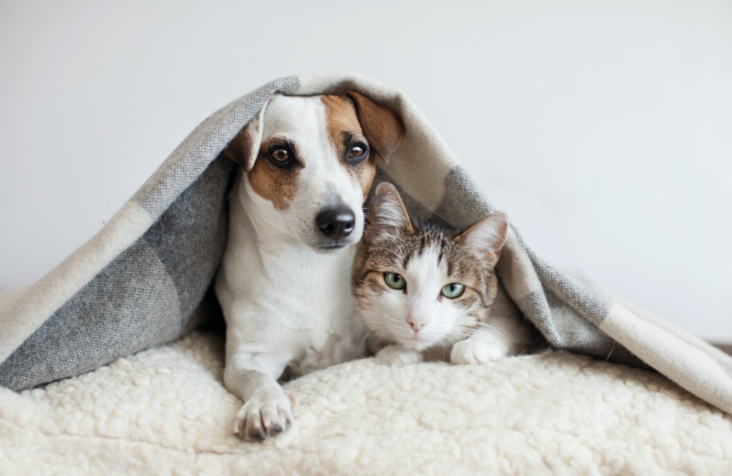Everyone loves essential oils; they are a great way to decrease nasal congestion, anxiety, sore muscles and more! With a rise in the use of oil diffusers in the home, we need to look at how these oils will affect our beloved pets at home.
The danger goes beyond “this oil is bad and this one is not.” Just like in humans, different animals react to different oils. We must look at the concentration level or how you are mixing the products. An example that the ASPCA gives it that “tea tree oil may cause an issue for your pets with only seven or eight drops, whereas another oil may take more or less.”
The first step to safeguard your pet is to keep the oils and diffuser up and out of paw’s reach. This way they cannot ingest or directly inhale the oils. Use the oil diffuser for shorter time periods and keep watch of your pet. If you notice a change in attitude or breathing, discontinue use and see a vet.
If your pet has a history of breathing problems, it may be best to avoid an oil diffuser altogether. Pets have a much better sense of smell than we do. So, while we can barely smell that lavender, they can really smell it. Remember, LESS IS MORE!
Here is a list of oils to avoid or use sparingly:
| For Cats, Avoid:
· Wintergreen oil · Tea tree Oil · Peppermint Oil · Eucalyptus Oil · Pine Oil · Citrus Oil |
For Dogs, Avoid: · Tea Tree Oil · Cinnamon Oil · Citrus Oil · Pennyroyal Oil · Pine Oil · Sweet birch oil · Wintergreen oil |
You do not have to avoid using your oil diffuser because of your pets. Just make sure you are smart about it and keep them in mind. Watch for symptoms like drooling, vomiting, depression, wobbliness or anything else that is out of the ordinary for your pet. Remember that your cat licks itself to clean and if the oil is in the air, it is on your cat. Our pets also lick us, so avoid applying the oils on areas of the skin where they like to show their love!
For more information, visit these articles that helped inspire our post today:
https://www.aspca.org/news/latest-home-trend-harmful-your-pets-what-you-need-know
https://www.rover.com/blog/essential-oils-safe-dog/
https://www.thesprucepets.com/dangers-of-essential-oils-555089
If you think your pet may have ingested, or been exposed to a potentially poisonous substance, contact your veterinarian or the APCC at (888) 426-4435 immediately. You can learn more about keeping your pets safe from toxins by downloading the APCC Mobile App or checking out our entire list of dangerous household products.

